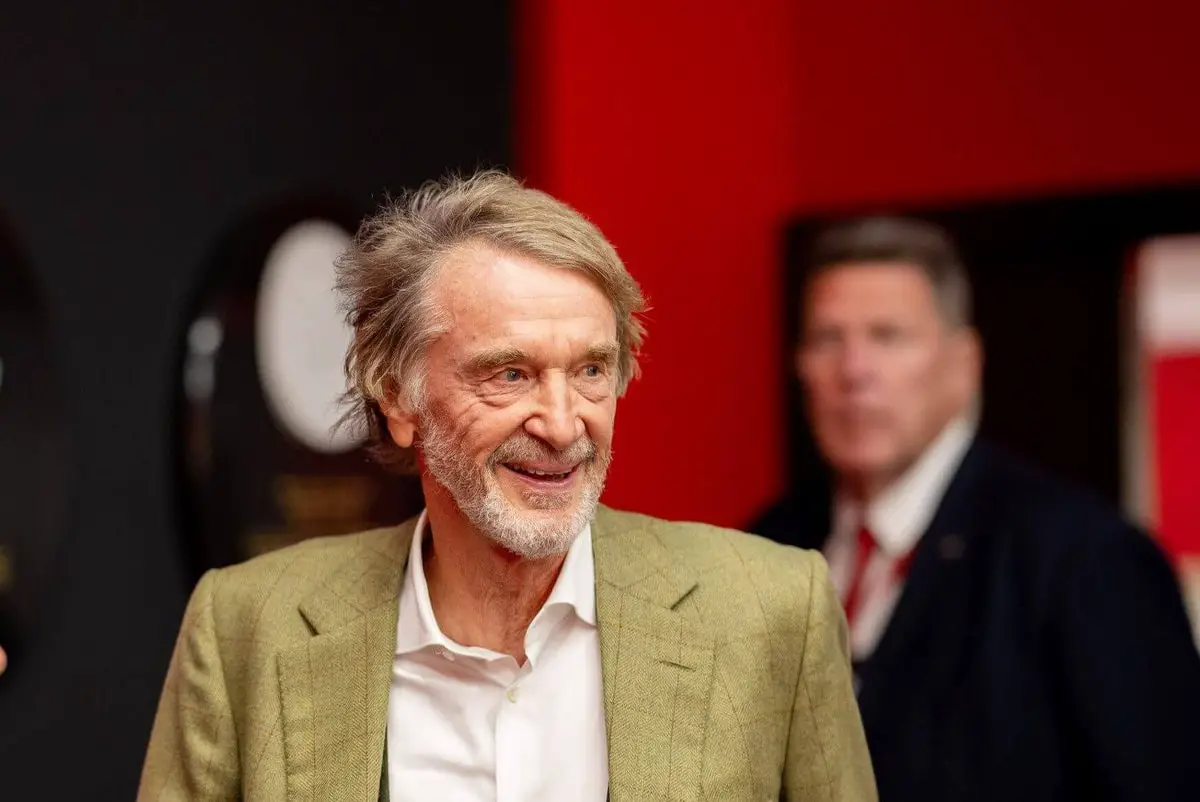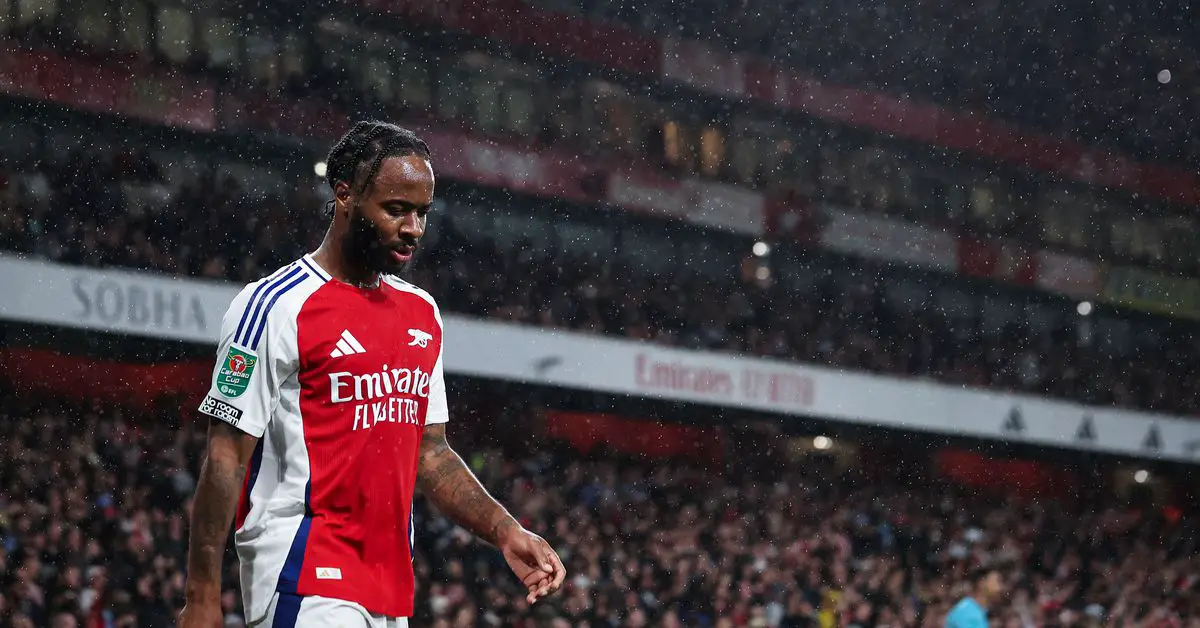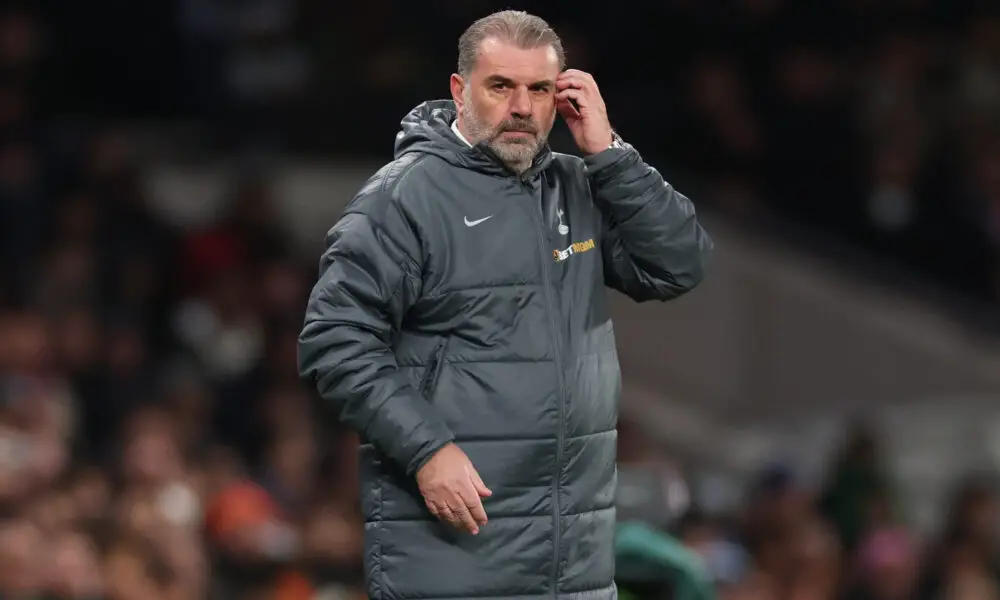If you were feeling extremely generous, or if your instinct was to regard billionaires with an awe-struck reverence, you might look at the latest news out of Old Trafford and persuade yourself that Sir Jim Ratcliffe is bringing back the ruthlessness that Manchester United have lost.
Hiring Dan Ashworth — “clearly one of the top sporting directors in the world”, Ratcliffe had previously said — and getting rid of him five months into the job? That’s ruthless alright.
A wide-ranging redundancy programme? Withdrawal of free bus travel for staff attending the FA Cup final last May? No Christmas party? A proposal to halve the club’s £40,000 annual funding to their Disabled Supporters Association? Raising prices for all as-yet-unsold tickets (even for children and pensioners) to £66? Yeah, this is all pretty ruthless.
It is also even more disheartening for all affected when the savings have been dwarfed by the cost of some of the big decisions in the nine months since Ratcliffe bought a 27.7 per cent stake in the club: paying £10.4 million to sack Erik ten Hag and his staff in October, barely three months after extending his contract; parting company with Ashworth this weekend, just five months after paying Newcastle United millions in compensation to get him to Manchester; a £200million summer transfer outlay which, even if it is too early to judge, cannot have impressed Ratcliffe given that Ashworth, who led it, has already been sent packing.
The first year of a new ownership regime is often like this: sweeping changes, rushed changes, unpopular changes, unsuccessful changes that lead to more sweeping changes just a little further down the line.
Cast your mind back to the chaos of the first year or two after Chelsea were bought by a consortium led by Todd Boehly and Clearlake Capital: so many comings and goings behind the scenes (as well as the bewildering turnover of managers and players). The stability that has underpinned Liverpool and Manchester City over the past decade was little in evidence in the first year or two after they were bought by Fenway Sports Group and Sheikh Mansour’s Abu Dhabi United Group respectively.
There is no doubt Manchester United needed a shake-up — some supporters were keener on a Sheikh-up — after a decade of stagnation and drift under the ownership of the Glazer family, who retain overall control. Ratcliffe’s determination to end what he has called their “mediocre” performance and to wrestle with challenges that had previously been ignored by the Glazers, most notably the question of how to redevelop Old Trafford, is certainly welcome.
But the concern is — and has been for some time — that, for all his hard-hitting words and the tired local-boy-done-good narrative, Ratcliffe’s record in football club ownership is… well, mediocre.
Sir Jim Ratcliffe (third left) is flanked by Sir Dave Brailsford at Villa Park in October (Michael Regan/Getty Images)
There is little in Ratcliffe’s track record in France and Switzerland, with Nice and Lausanne Sport respectively, to suggest his expertise in the petrochemicals industry amounts to any kind of golden touch when it comes to football club ownership. Likewise INEOS head of sport Sir Dave Brailsford, whose success as performance director of British Cycling has led Ratcliffe to regard him as a sporting svengali, given a kind of minister-without-portfolio role at Old Trafford.
This article in June last year explored the INEOS record at Nice in particular and found little enthusiasm and even less warmth towards Ratcliffe. Solange Claude, president of the Club des Supporters 1947, complained that INEOS “don’t buy good players and they don’t hire good coaches. They do not know football or the world of football”. Unsurprisingly, relations between fans and ownership have deteriorated further since he switched his focus to Manchester.
Upon buying his stake at Manchester United, Ratcliffe spoke of the need to “walk to the right solution, rather run to the wrong one”. Wise words indeed, but two of the biggest decisions he has made — retaining Ten Hag’s services at the end of last season and hiring Ashworth to oversee the football operation — have been protracted, expensive and then embarrassingly short-lived.
Ratcliffe has made frequently clear his disdain for the state of the club he has bought into, making withering assessments of the “outdated” structures, the recruitment record, the workforce (even the “high degree of untidiness” in the offices) and of course a team that has not come close to challenging for the Premier League or Champions League titles since Sir Alex Ferguson stood down as manager in 2013.
In an interview with the United We Stand fanzine, published at the weekend, Ratcliffe said the club had “drifted for a long time, a decade or so” and had “become mediocre”, adding that “there is major change to come (in order) to achieve elite status”.
Few Manchester United supporters would disagree with that diagnosis. Most have applauded it after years of silent complacency under the Glazers and a chief executive, Ed Woodward, who used to speak proudly of a “cultural reset” which he alone seemed to have witnessed.
This summer saw a genuine attempt to reset, with the arrival of what was excitedly portrayed as a brains trust: Ratcliffe, Brailsford, Ashworth, Omar Berrada arriving from Manchester City to take over as chief executive, Jason Wilcox arriving from Southampton as technical director, with input also coming from ex-Juventus chief executive (and CEO of INEOS Sport) Jean-Claude Blanc and former Chelsea technical director Christopher Vivell.
Compared to what was there before, it was a welcome influx of knowledge and experience. It also looked like the type of C-Suite overhaul that inevitably brings power struggles and personality clashes as new executives wrestle for influence.
Ashworth quickly became the odd one out. The Athletic has learnt that Ratcliffe was extremely unimpressed when, as Ten Hag’s tenure fizzled out, Ashworth proposed a shortlist of candidates (including Fulham’s Marco Silva, Brentford’s Thomas Frank, Newcastle’s Eddie Howe and former Brighton & Hove Albion and Chelsea coach Graham Potter) rather than a single stand-out target. Ratcliffe wanted to be told who the new manager should be, not another interview process involving coaches who had failed to excite him in the summer.
But anyone familiar with Ashworth’s work with West Bromwich Albion, the Football Association, Brighton and Newcastle would know he is a stickler for structures and process rather than a visionary inclined to go with his gut instinct. And he would have been forgiven for imagining that was what Ratcliffe wanted, given his previous declarations on the subject of how a “proper” organisational structure should work.
Rather than a drastic failure on Ashworth’s part, it looks a classic case of too many cooks — or too many chiefs. Once he arrived, after that lengthy compensation wrangle with Newcastle, he found himself positioned between a new chief executive, Berrada, who was chief football operations officer at City Football Group, and a new technical director, Wilcox, who was director of football at Southampton. That Berrada and Wilcox are close, having previously worked together at Manchester City, cannot have escaped Ashworth’s notice.
It was Berrada who took charge of the process that led to Ruben Amorim’s appointment and, with hindsight, it spoke volumes that the former Sporting coach spoke on arrival in Manchester of how the chief executive — rather than the sporting director — had “told me about their plans”.
What is less clear, 10 months into the INEOS regime, is what those plans are. The whole thing looks confused.
Another thing Ratcliffe said last February was that he planned for the playing style — not just for Manchester United’s first team but for teams at their clubs in the INEOS Sport network — to be determined by committee. “We’ll decide, that team of people, it’ll be us, plus the CEO, sporting director, probably the recruitment guys, what the style of football is and that will be the Manchester United style of football,” he said, “and the coach will have to play that style.”
If any such vision has begun to take shape, it did not appear to have any significant bearing on either the club’s summer transfer outlay (on Noussair Mazraoui, Matthijs de Ligt, Leny Yoro, Manuel Ugarte and Joshua Zirkzee) or the appointment of Amorim.
Ten Hag was still trying to coach the team his way to the bitter end while Amorim appears to have free rein to implement his preferred style, which is markedly different in more than just formation. Nothing wrong with that — vastly preferable to Ratcliffe and Brailsford telling the former Sporting coach what style of football he should be playing — but Amorim has already made clear that the squad he inherited, which underwent a £200million facelift this summer, is short of specialists who suit his technical requirements.

Ruben Amorim has won one of his four Premier League matches (Alex Livesey/Getty Images)
Is that a reflection on Ashworth? Usually it would be. But he wasn’t the one who pushed for Amorim to be appointed and, if that is to be a stick to beat with him in one respect, it offers mitigation in another; if there was a feeling among the club hierarchy that Amorim was emerging as the leading contender to take over in the (entirely foreseeable) event of a poor start under Ten Hag, then the summer recruitment should have reflected that, rather than an awkward £200million collaboration between a manager and sporting director who were both gone within months.
As it is, Amorim has inherited a squad that looks so far short of his requirements, not just in terms of a 3-4-3 shape but the physical, technical and tactical qualities within that framework. There have been glimpses of promise, but a record of four points from his first four Premier League games, with his team 13th in the Premier League and 12th in the Europa League standings, underlines that this is not going to be a short-term fix.
Ratcliffe knew that. He has repeatedly said so. Yet he imagined that hiring Ashworth — a “10 out of 10 sporting director” it now seems he knew little about — was precisely a quick fix. And when that wasn’t the case, getting rid of him became the quick fix. That is two of Ratcliffe’s big early calls (Ten Hag’s new contract, Ashworth’s appointment) that he has quickly lost faith in, despite the expense involved.
Football is full of rich businessmen who naively imagine their success in another field will easily translate to a sport and an industry they have followed from afar. How hard can it be, right? And so many of them start out by talking a good game and end up making a total mess of it. Or if they get things right, it is only after learning from a lot of mistakes.
On a positive note, Ratcliffe seems more determined to “fix” Manchester United than the Glazers have ever done. It is positive, too, that he is not afraid to face up to his mistakes. It is just as well because, at this rate, there will be plenty more of them.
(Top photo: Ash Donelon/Manchester United via Getty Images)




